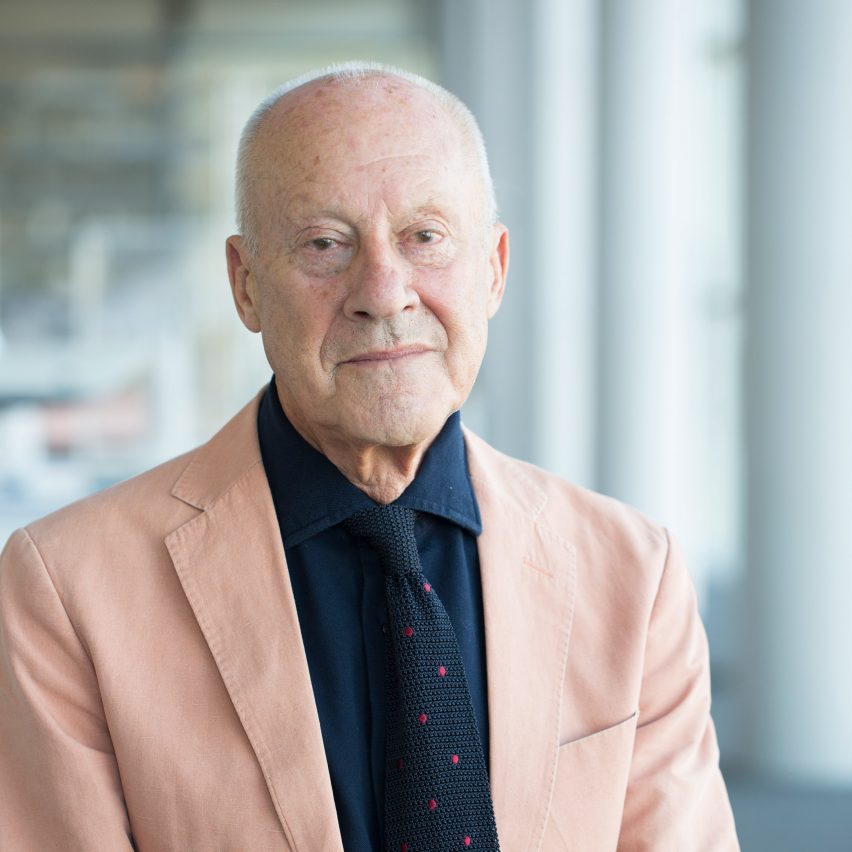
The coronavirus pandemic will not fundamentally change cities, but could lead to more sustainable buildings, a "renaissance" for urban farming and a "new future" for monorails, says Norman Foster.
In a speech to the United Nations Forum of Mayors in Geneva, Foster said that he believes the current pandemic will not have a long-term impact on cities but will accelerate current trends.
"Is Covid-19 going to change our cities?" asked the founder of London-studio Foster + Partners. "I suggest that it might seem so now, but in the wider arc of history, the answer is no."
"Instead of change, it has merely hastened, accelerated trends of change that were already apparent before the pandemic," he continued.
"Each crisis hastened and magnified the inevitable"
Foster compared the current coronavirus pandemic with previous crises that have impacted cities, which led to improvements in building standards and health-driven architecture.
"Take London as an example," he explained. "The Great Fire, 1666, created Building Codes that led to fireproof brick
construction."
"The Cholera Epidemic of the mid-nineteenth century cleaned up the Thames from an open sewer and was the birth of modern sanitisation," he added. "In its wake came the healthy dimension of public parks."
"Then Tuberculosis struck and helped the birth of the modern movement in architecture – big windows,
sunlight, terraces, white and clean," he continued.
"But every one of those consequences – fireproof construction, sewers, green parks, modernism – would
have happened anyway and not just in London but in cities around the world, because cities learn from each other – each crisis hastened and magnified the inevitable."
Sustainable buildings "could become mainstream"
The London-based architect, who was a key figure in the development of high-tech architecture, believes that the coronavirus pandemic could speed up the adoption of more sustainable buildings and transport.
"We now have scientific evidence to prove that green buildings with natural ventilation are not only good for your health, but they enable you to perform better," he said.
"These kinds of buildings are now the exception. But they could become mainstream. We also have proof that green spaces in cities – however big or small – contribute to health and wellbeing."
For transport, he said that current trends towards electric vehicles will continue as well as a rise in use of e-bikes and scooters, while charging on the move could be introduced and monorails could return.
He also said car parks could be obsolete and went on to predict that farming could make a return to cities as one of several ways that urban areas could become greener.
"The cumulative effect of just some of these many trends are transforming city centres and local neighbourhoods, making them quieter, cleaner, safer, healthier, more friendly, walkable, bikeable and, if the opportunity is grasped, to be greener," he said.
"History tells us that the future is not two-metre distancing"
The architect was positive that cities will recover from the current health crisis. He recalled the Spanish flu pandemic in the early 20th century as evidence that cities would not have to enforce social-distancing rules in the long term.
"History tells us that the future is not two-metre distancing," said Foster.
"The last major pandemic in 1918-20 claimed more lives and young ones, created deserted city centres, face masks, lockdowns and quarantines," he continued.
"Sounds familiar? It also heralded the social and cultural revolution of the 1920s, with big public gathering spaces, department stores, cinemas and stadia."
The architect concluded that the current crisis could lead to cities being improved to become places that are more appealing to live in and more resilient to future health issues.
"The pandemic is a tragic event for so many, we have all lost loved ones and for the moment the virus
continues," he said.
"But stepping back, I am confident that cities will prove their resilience and appeal – they will bounce back stronger and better as a consequence."
Many other designers have been predicting how the coronavirus will impact cities with Ukrainian architect Sergey Makhno predicting how our homes will change and Michelle Ogundehin outlining 11 ways interiors of future houses will be designed to mitigate coronavirus.
Trend forecaster Li Edelkoort said that the pandemic will lead to "a global recession of a magnitude that has not been experienced before" and would allow humanity to reset its values.
The post "Is Covid-19 going to change our cities? The answer is no," says Norman Foster appeared first on Dezeen.
from Dezeen https://ift.tt/2GSoeMa
No comments:
Post a Comment